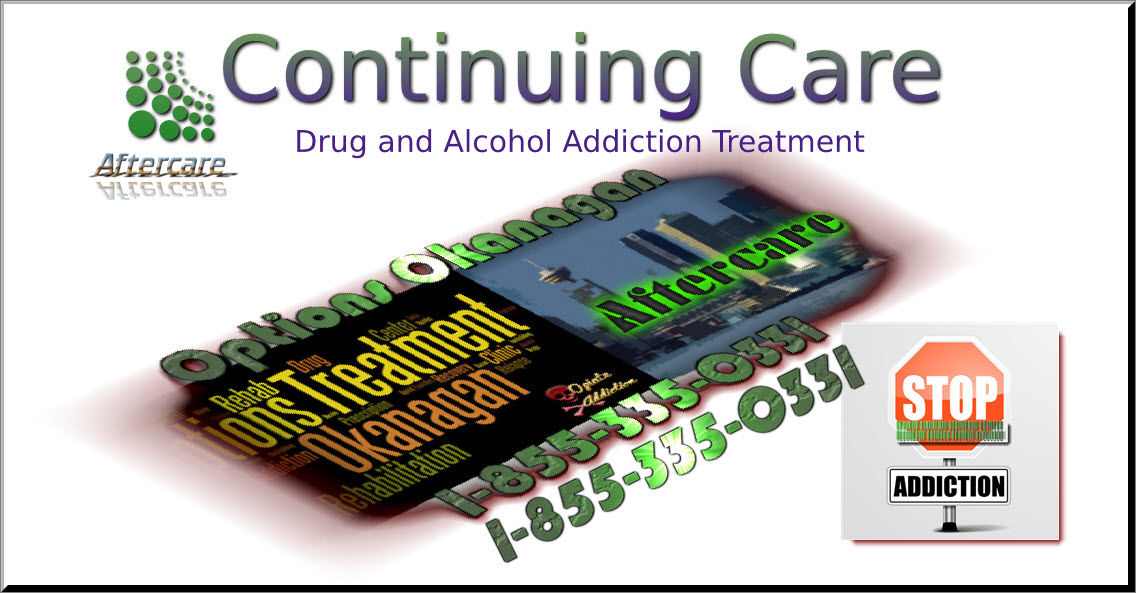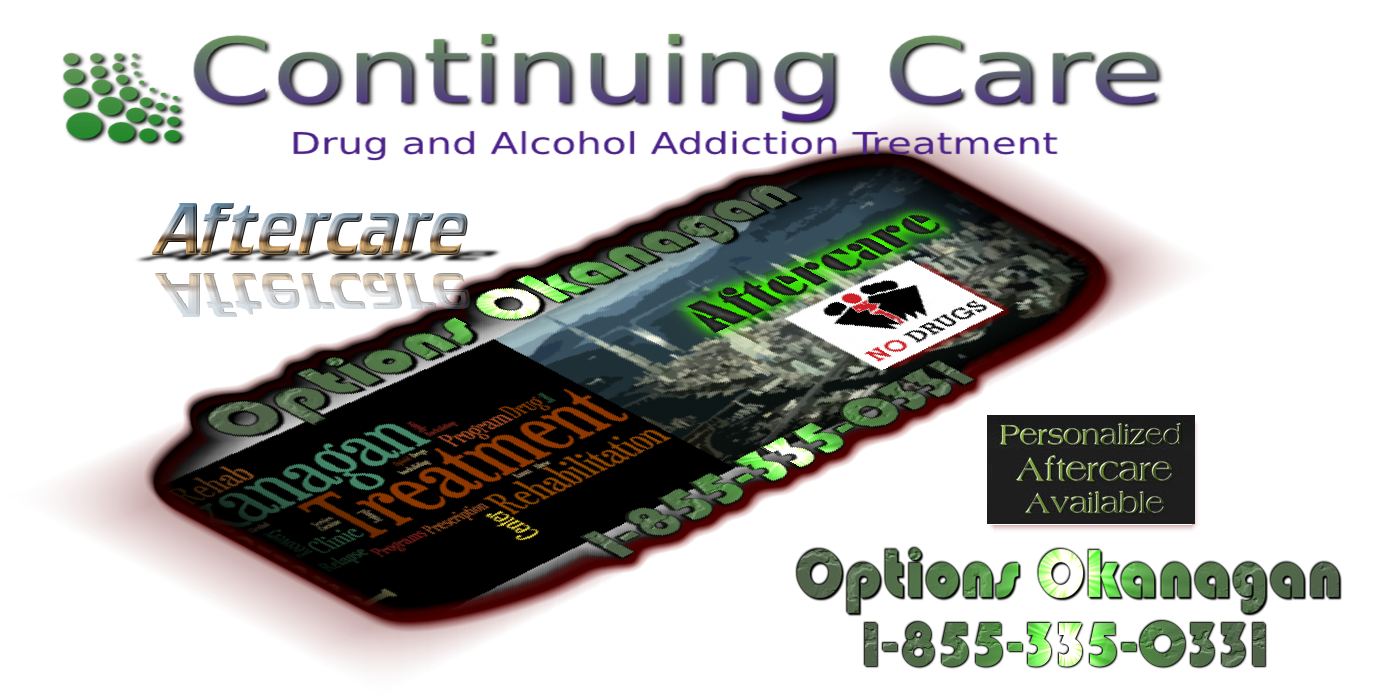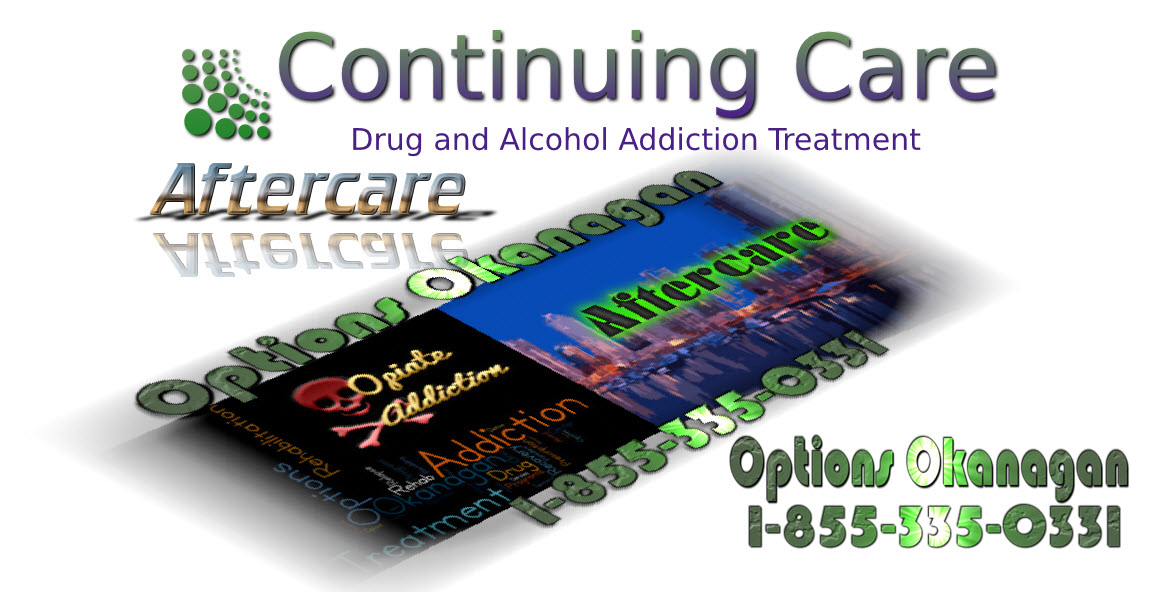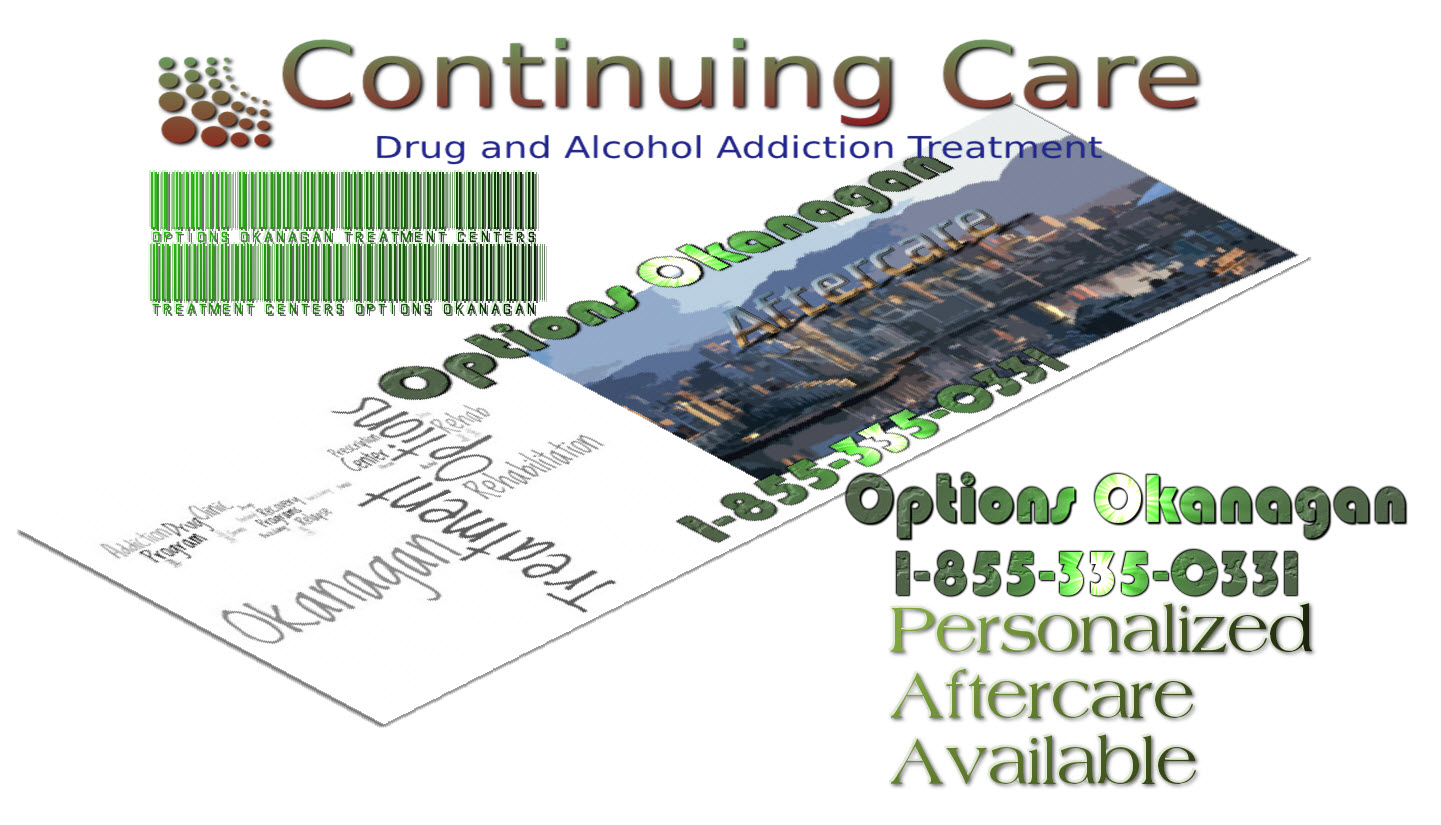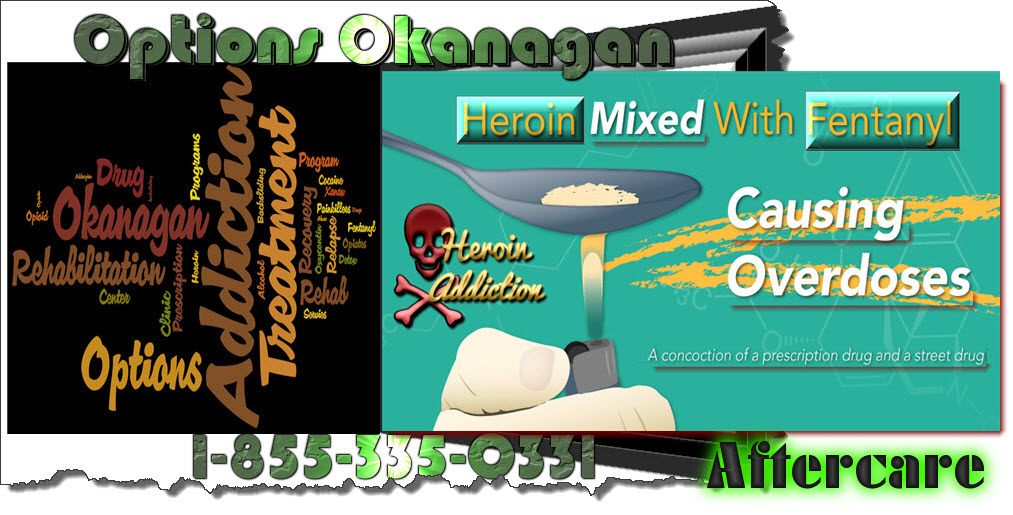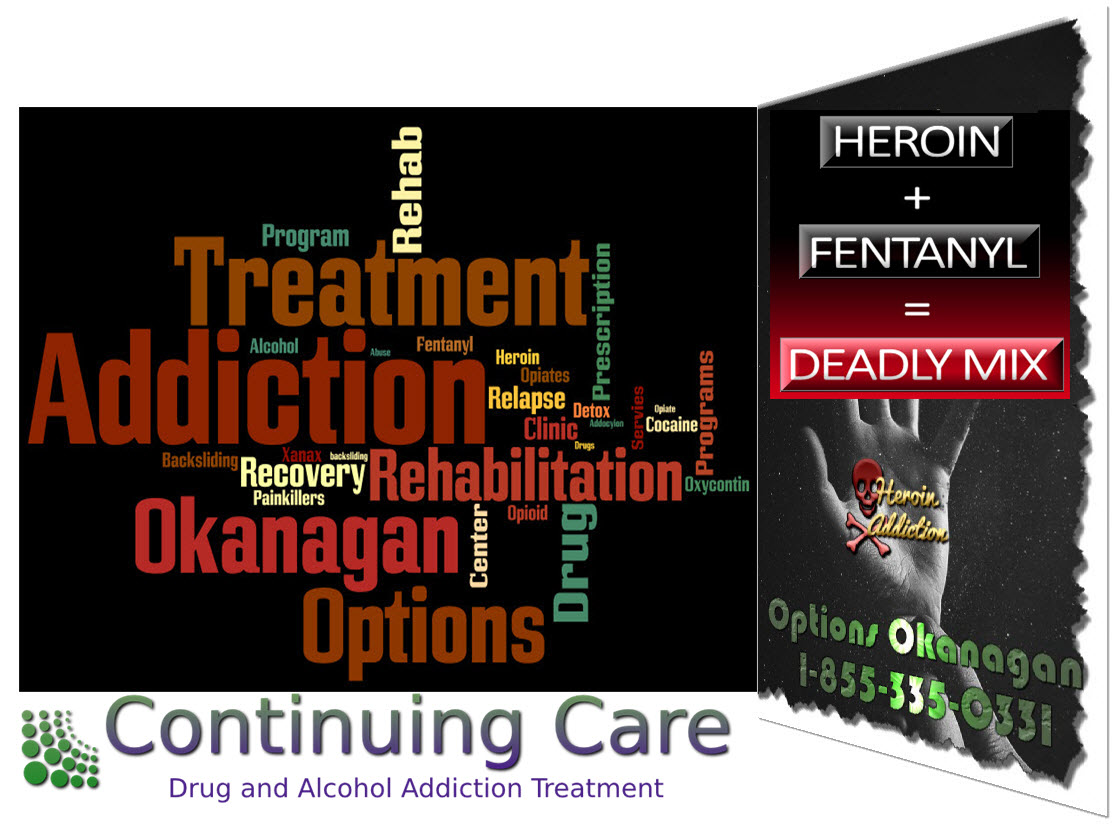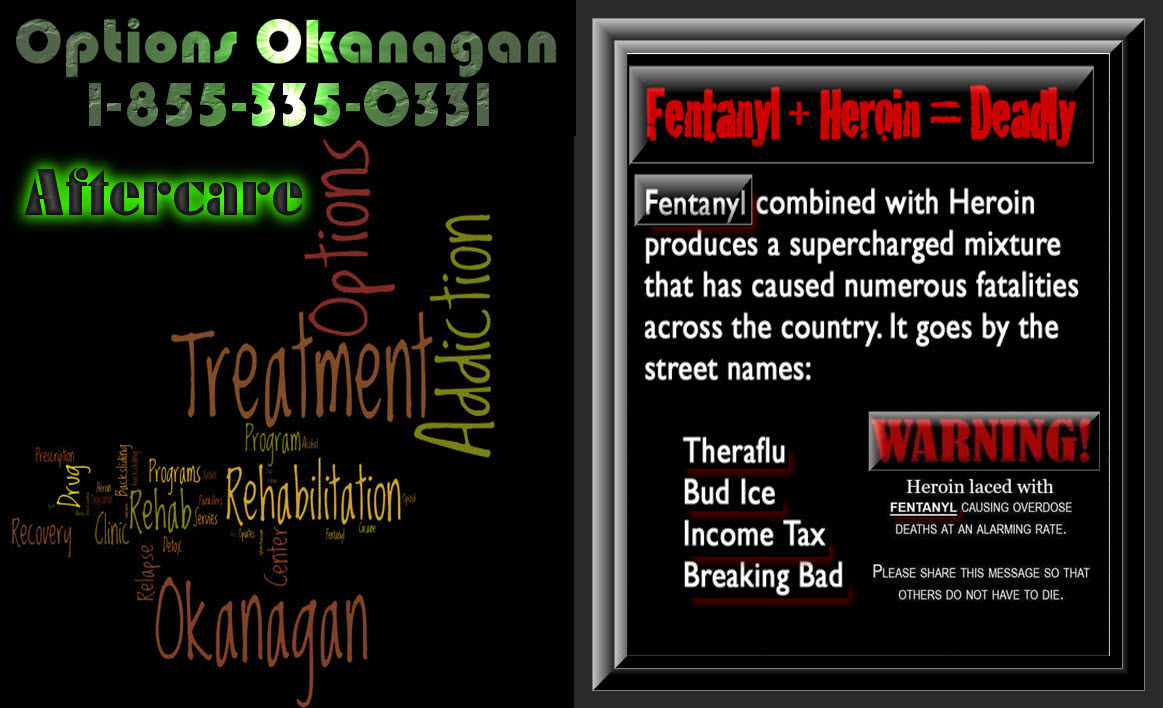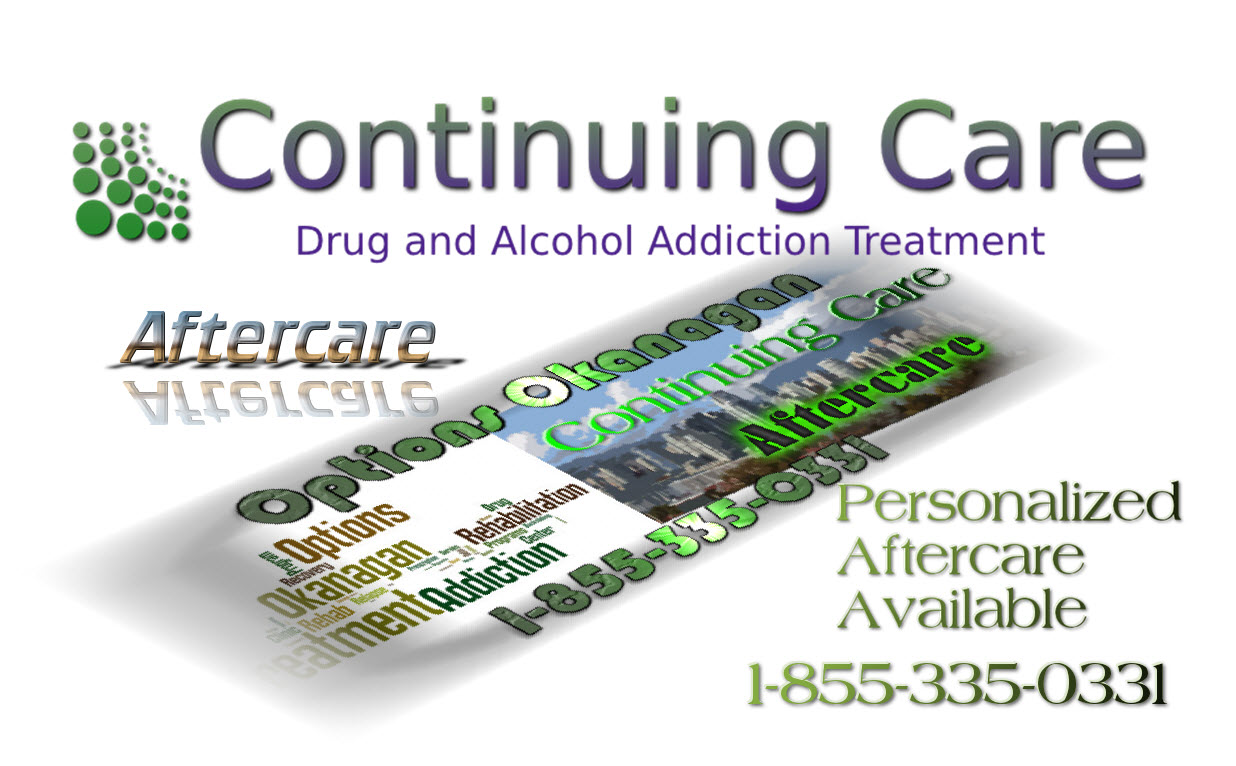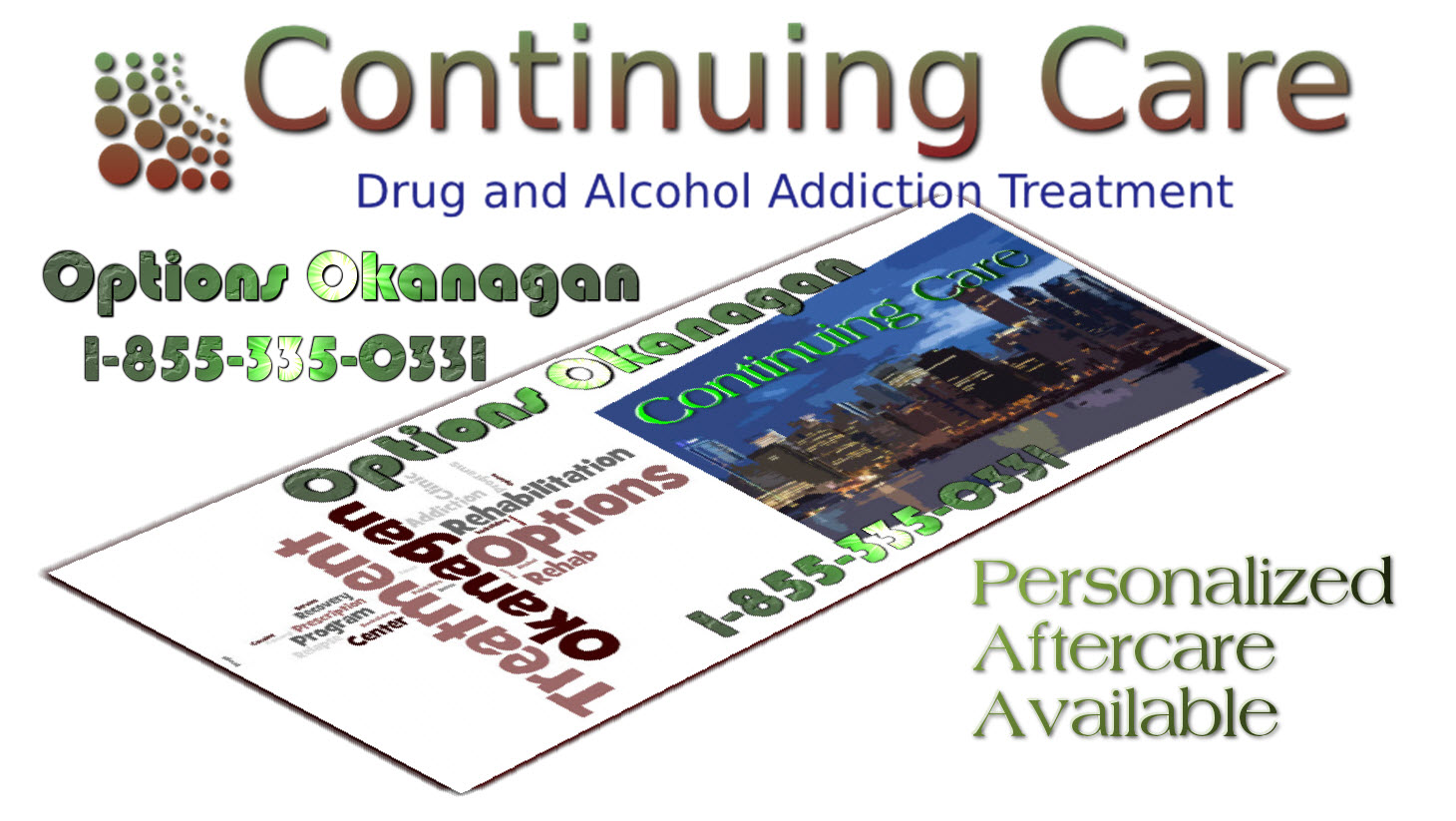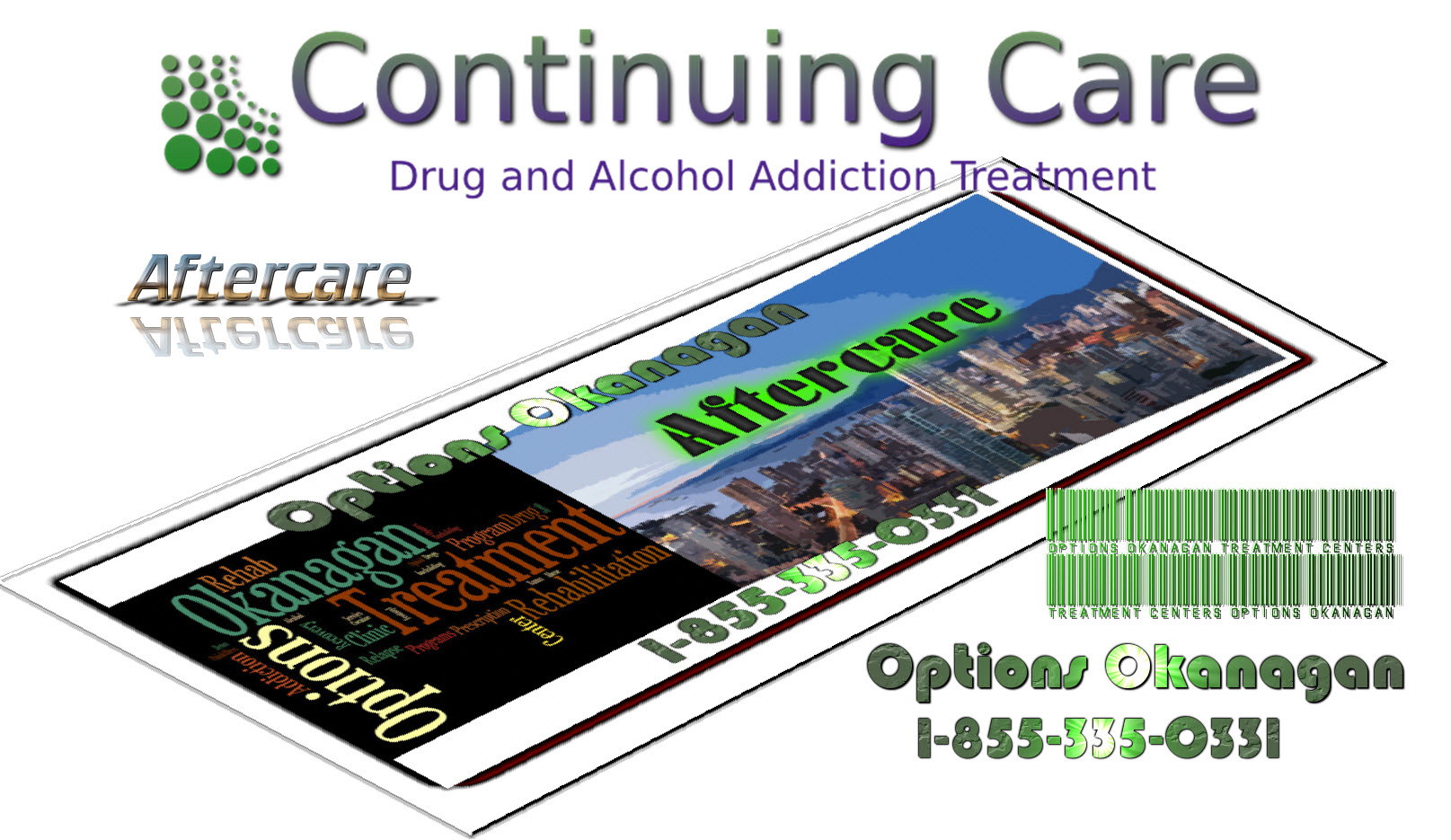Aftercare And Continuing Care: Going from drug and alcohol treatment to independence in Vancouver, Victoria and Kelowna, British Columbia – Options Okanagan Treatment Centers in Kelowna, British Columbia treating opiate and alcohol addiction and recovery.
Independence doesn’t start instantly after treatment is complete; former addicts need to go through a transition process before they’re ready for a sober life. The gap in between treatment and independence is a very vulnerable. Most people struggle with an incomplete understanding of their new responsibilities and limited resources while they move towards a life of sobriety.
Recovering addicts absolutely require quality aftercare if they are to make their sobriety permanent in the future. Our mission is to develop a customized aftercare plan for each individual in order to maximize their chances of success as they move toward full independence.
Preventing Relapses And Aftercare
While the individual learns how to manage his or her own recovery, relapse is the biggest threat that needs to be dealt with. Ongoing support programs and regular counselling are tremendously helpful to most recovering addicts, and these aids make it easier to break out of the substance abuse cycle. Options Okanagan wants to provide the support every recovering addict needs to steer clear of relapses and chart a bath to an addiction-free life.
Education And Familial Assistance
Good aftercare programs assist relatives as well as recovering addicts. They provide much-needed education and support to family members. Options Okanagan team members try to work with families as well as individuals in order to improve the long-term prospects of those recovering from addiction. Family members who require additional assistance are frequently referred to community-based programs including Al-Anon, Nar-Anon, and CRAFT (Community Reinforcement and Family Training) programs. Bringing relatives into the recovery process is important in order to heal the instability and mistrust that addiction introduces into the family.
Communicating Freely
Recovering addicts who have completed the first phase of their treatment will have a wide range of concerns and questions. They usually want to re-build damaged relationships, establish healthy coping mechanisms, and build better habits at this point. We want to provide the safe space individuals need to address their concerns and make them comfortable with asking any type of question. Recovery takes a long time, and open communication is vitally important to making the aftercare process productive.
Recovery Choices
The best healing process differs from individual to individual. This is why Options Okanagan helps recovering addicts down many different paths to sobriety. Programs like Alcoholics Anonymous, Narcotics Anonymous, and SMART Recovery are some of the popular options, but they are by no means the only ones. We start our assistance with each individual by assessing their unique recovery needs. This allows us to chart a recovery path that provides much-needed structure, guidance, and accountability on the road to sober living. Ultimately, we want to give recovering addicts the tools they need in order to connect with both a larger community of professional therapists and with peers.
Transitioning Out Of Treatment
Leaving an inpatient facility and facing society can be an extreme challenge for recovering addicts. We can provide individuals with a range of choices for transitional residences that are sensitive to the needs of recovery. This lessens the pressure individuals are subjected to and makes it easier to rebuild their lives. Being in close contact with peers who have faced similar challenges is a great help to those who are just starting out on the road to recovery.
Easing The Way From Treatment To Normal Life
Options Okanagan understands that addiction comes from many different places. The tools and techniques required to leave addiction behind and return to mental health need to be tailored to the needs of the individual. We are committed to helping every recovering addict not only complete basic treatment but also make a full recovery through our aftercare programs. Our support is intended to foster health on both a physical and mental level, and we are always open to working with other professionals in the fields of health care and recovery who can help addicts chart a path back to full sobriety.
Options Okanagan Opiate and Alcohol Treatment Centers in Kelowna, Salmon Arm and Vancouver, British Columbia – Men and Women are recovering and healing from Alcohol and Drug Abuse at our treatment center here in the Okanagan right now.
Our unique and distinctive Opiate Drug and Alcohol treatment program allows men and women to come in from Calgary as well as Edmonton as we offer airport pickup.
Numerous clients come to us from Vancouver, Calgary and Edmonton and other locations in Alberta and even other provinces for Opiate addiction treatment, heroin drug treatment, many other drug and alcohol addictions for rehabilitation because of the uniqueness of our treatment center.
Our Treatment Location:
Options Okanagan Opiate Treatment Center
551 Sherrydale Crescent, Kelowna, British Columbia, V1V 2E6
Toll Free Phone Number : 1-855-335-0331

